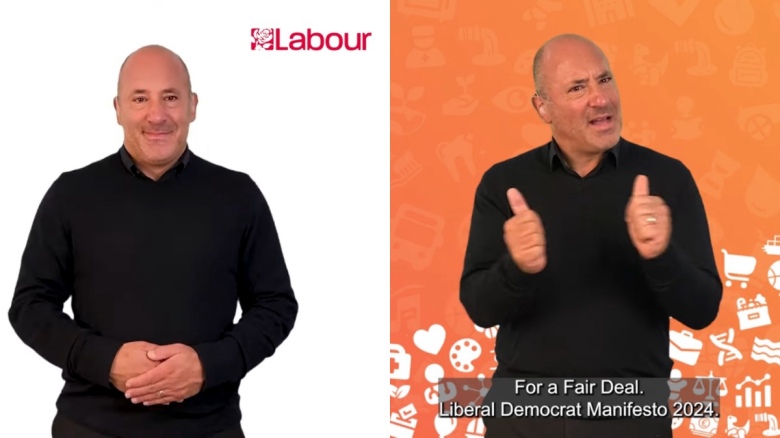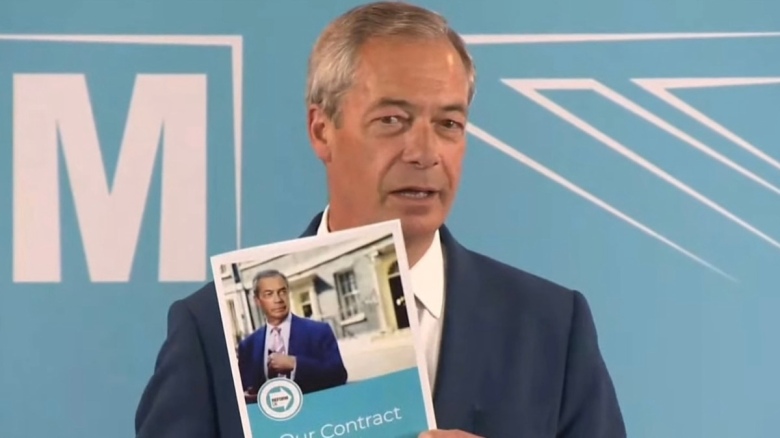The British Deaf Association has called for the end of the “signwashing” of British Sign Language (BSL), at a Parliamentary event at the start of this year’s Sign Language Week.
Defined by Chief Executive Rebecca Mansell as the “pushing to one side” of BSL and the notion that it is “inferior” to spoken English, the charity’s boss said the attitude is “damaging our children’s development”.
She said: “When we assume what a deaf child needs – whether a deaf child will benefit from [BSL] or not – you’re taking their rights away, their right to decide.
“A child cannot decide for themselves, therefore we are committed to addressing the unconscious bias against sign language – rejecting BSL in favour of speech needs to be addressed.”
The event on Monday also celebrated the launch of the BDA’s ‘BSL In Our Hands’ campaign, which focuses on access to British Sign Language and Irish Sign Language for deaf children from birth to the age of five, and calls on the government to invest £4.96 million to “develop BSL across the country for deaf babies”.
The charity notes 90 per cent of deaf children are born to hearing parents, but families do not currently receive financial support from the UK Government to learn BSL to communicate with their own children.
Such confirmation came in January last year, when in response to a 19,000-signature strong petition launched by mother Katie Littlejohns, the Department for Education said there are “no plans to introduce a universal free BSL course” for parents and guardians of deaf children.
The BDA argues early BSL provision for deaf children is “essential”, with it forming one of its 10 principles for the ‘BSL In Our Hands’ campaign.
Others include addressing the “widening gap in achievement” for deaf children in education, ensuring they grow up fluent in both sign language and English (instead of the “outdated and detrimental” advice forcing parents to make a binary choice), and recognising deaf people are the experts when it comes to their own service provision.
The new campaign is similar to recent actions taken by the National Deaf Children’s Society, which transferred three of its youth-centred initiatives to another charity last month to focus on its new early years strategy.
Tilly Hawkes, a parent of a profoundly deaf daughter and ambassador for the BDA’s new campaign, told attendees in an emotional speech that Ada’s speech “had not developed whatsoever” two years after her diagnosis.
“She was a bag of frustration and anger and everywhere we went, it was difficult. I was just anxious all of the time knowing that she couldn’t access what we were doing.
“I couldn’t even tell her where we were going. She was always just so frustrated.
“Three years on, I can’t express to you the difference in her. BSL has given me my baby back.”
Chloe Smith MP, special ambassador for the BDA and former Minister for Disabled People, added: “I want a world where every parent is empowered by a rich, vibrant, equally accessible language – if that’s BSL, as they choose, or indeed other languages – so they can ensure that their deaf child thrives from the very beginning.
“The choice in that is critical. for the child, for the family, and for society to see that that choice means freedom.”
The Conservative politician, who backed Rosie Cooper’s BSL Bill in 2022 as minister to help it through Parliament, called on peers, fellow MPs and “the next generation” of representatives joining the Commons after the next election to use the BSL Act and hold the Act “to account”.
“You have to make sure that governments of today and tomorrow and 10, 20 years hence, do what that Act promises, and you have to make sure you do that by holding it to account every year on its report on implementation.”
As well as legally recognising BSL as a language in English, Scotland and Wales, the BSL Act requires the Secretary of State for Work and Pensions to produce regular reports on the work being done by the UK Government to ‘promote and facilitate’ BSL.
The first report on this issue, published in July last year, found more than half of the government departments mentioned didn’t produce any BSL content in the June 2022 to April 2023 reporting period.
In her speech to attendees of the Parliamentary event, Mims Davies MP – the Minister for Disabled People, Health and Work – said: “It’s important to note that different departments will communicate – whether in BSL or otherwise – in different ways because they have different responsibilities, different remits, or perhaps different audiences.
“I’m pleased to mention that my department did the most communication in BSL across government departments last year.”
The Department for Work and Pensions (DWP) produced a total of 25 pieces of signed content across public policy announcements, publications; and press conferences, social media or government website use – placing it top out of just nine departments which produced at least one piece of BSL content in the reporting period.
The minister also said that “for people to be fully engaged in our democracy, you must be able to speak to them in their language”, in remarks which come three years after the UK Government was found in breach of the Equality Act for failing to provide BSL interpretation for two coronavirus data briefings.
While the recognition of BSL and reporting duty came into effect two months after the passing of the BSL Bill in April 2022, a requirement on the Work and Pensions Secretary to issue guidance on the “promotion and facilitation of the use of [BSL]” will only come into force once the secretary implements regulations through a statutory instrument.
On Monday, Davies confirmed “the drafting of this guidance is underway” and will be published “later this year”, with the material including “broader advice on best practice for communicating with BSL users, including case studies to illustrate the value of providing BSL interpretation in communications with the public in both our central and frontline communications”.
She added government officials are “working closely” with members of its non-statutory BSL Advisory Board, made up of Deaf representatives, to ensure it is in accordance with the BSL Act, Equality Act and the Public Sector Equality Duty.
Elsewhere, Davies commented on the previous announcement that No 10 would provide an “in situ” BSL interpreter for major press conferences from the spring “once contracts are fully in place”.
It comes four years after Deaf activist Lynn Stewart-Taylor raised awareness of the lack of a BSL interpreter for the government’s daily coronavirus briefings with her ‘Where Is The Interpreter’ campaign.
When approached by Liam O’Dell for comment on why in-person BSL interpretation couldn’t be provided sooner, Davies said: “Since I’ve been in place, one of the key bits is making sure that we’ve got access as government, when things are happening in quick time, to the suitable contracts, in order to get the messages out there.”
The Mid Sussex MP was made a Parliamentary Under-Secretary of State at the DWP in October, in a decision which sparked condemnation from disability organisations and advocates after the dedicated Minister for Disabled People role held by her predecessor, Tom Pursglove MP, was scrapped by the government.
Her attendance at the BDA’s event came on the same day that the UK Government faced the United Nations in Geneva to give evidence on its work to meet the conditions of the UN Convention on the Rights of Persons with Disabilities (UNCRPD).
In 2017, the UN committee overseeing the convention said welfare cuts by the Conservative government had created a “human catastrophe” for disabled people living in the UK.
The evidence session follows the government skipping an earlier session on the issue back in August last year.
A government spokesperson told this website in a statement: “This Government is committed to the UN Convention on the Rights of Persons with Disabilities and has outlined the UK’s progress in advancing the rights for disabled people in this country.
“Our National Disability Strategy and Disability Action Plan are delivering tangible progress. This includes ensuring disabled customers can use the services they’re entitled to, disabled people’s needs are better reflected in planning for emergencies, and the UNCRPD is better understood across government.
“We are making this country the most accessible and importantly equal place to live in the world.”








